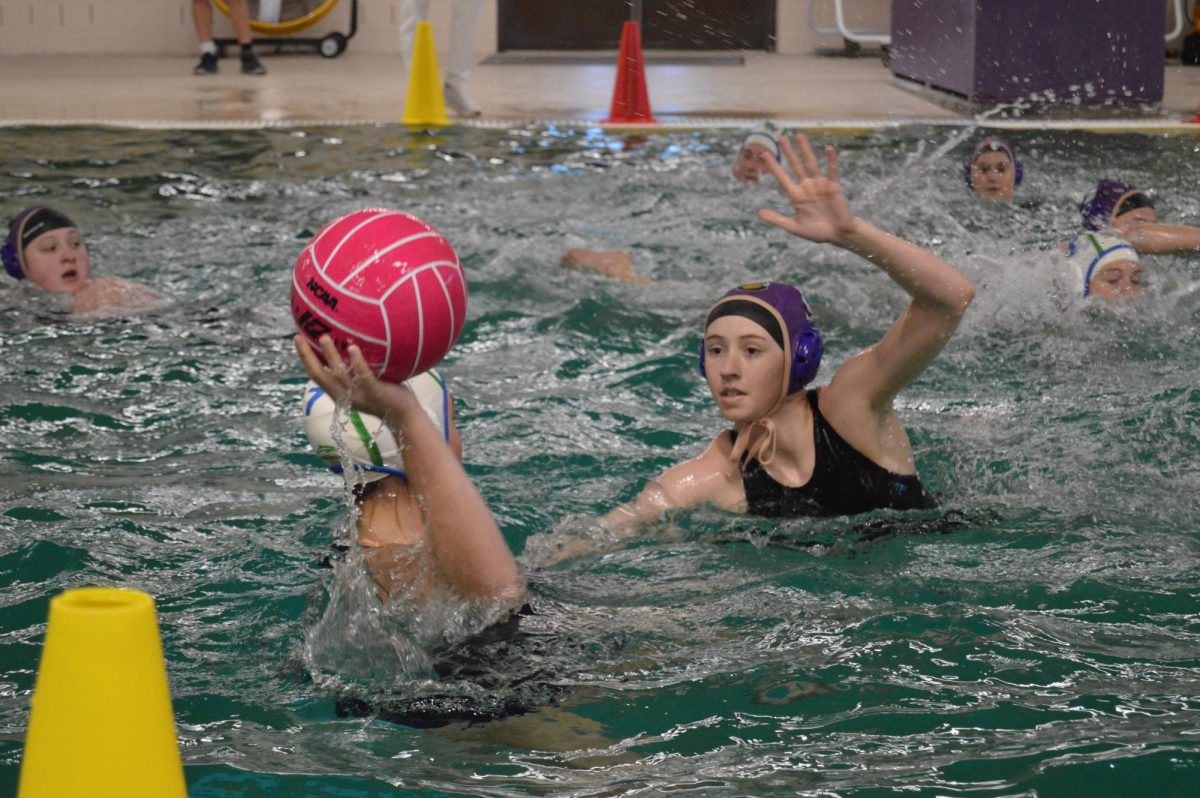Puyallup High School is known for having a strong sports program and this year has been was awarded first place All Fall Sports for our division.
Continuing sports in college is a post high school option and sports at PHS are a gateway to the next level of athletics according to 2012 alumnus Nathan McLaughlin.
“Sports in high school were great. The cross country team atmosphere was always very positive and I created some of my fondest memories with the team. There were many years when I was very successful as a part of the team and individually. Running became my high and I soon found a passion that continues to this day,” McLaughlin said.
After high school however there are many options to continue as an athlete. College sports are being taken to a new level.
“Swimming has been a part of my life since I was three years old and it was such a blessing for me to have the opportunity to swim in high school because I was able to become so close with my teammates,” 2012 alumna Emily Baier said. “I knew that I wanted to continue swimming in college so that I would still have the close knit team atmosphere around me to serve as my family on campus. The Pacific Lutheran University swim team did an excellent job of making me feel special as a recruit and the program is actually 90 percent of why I chose to come to PLU.”
Being a collegiate athlete proves to be a bit different than the average high school cross country or swim team.
“Sports in college are more work, require higher eligibility standards and more practice hours. It’s not just something you do alongside school, it’s a lifestyle,” former track and field athlete, Assistant Principal Eric Fredericks said.
Baier also has had a different experience on her PLU swim team than here at Puyallup.
“PLU swimming encourages leadership by all of the swimmers, not just the fastest in the pool. We are expected to be supportive teammates and work our hardest at each practice, no excuses,” Baier said. “Swimming is fun but that is a byproduct of having wonderful people on the team who care about each other, rather than of having throw-away practices.”
Training in college also has a new look.
“One of the biggest differences [between college and high school] is the intensity and type of training. Last year, as a senior in high school, I found myself running very low mileage during the season (40 miles a week) and our longest run being maybe 7 miles. Here at Seattle University I was running 60-70 miles a week during the season with my long run on Sunday being somewhere between 12-16 miles,” McLaughlin said. “That was a definite change for me. Also, besides running, we do core on Monday, Wednesday and Friday and then we lift weights on Tuesday, Thursday and Saturday. Both are pretty strenuous and difficult.”
When playing sports, coaches have an influence on athletic outcome. Coaches regulate competition, training schedule and often are a key form of motivation.
“The coach [for PLU swim], Matt Sellman, is a wonderful person and seems to really care about the athletes’ performance in the pool and in the classroom. He takes the time to pay attention to how the workouts can be personalized to optimize each swimmer’s performance and understands that academics have to come first if ever there is a conflict,” Baier said.
However, sometimes the higher level of competition means there is less of a personal connection between coach and athlete.
“Coaches have more event specific knowledge [in college] but high school coaches cared a lot more about us as people,” Fredericks said.
To move on to a collegiate level requires more than just talent. There are things needed to be done to set up the path to a college athletic career.
“Making sure you are getting the proper grades and support from people is important. College athletics are a process that you need to be informed about. Seek out coaches and colleges and find out what is really needed to compete at the next level,” Fredericks said.
To make athletics a continued lifestyle after high school the last thing to remember is to have a strong mentality.
“It is very important to stay focused. By competing at such a high level, so many things factor into competitions. Eating, sleeping and resting are so important. If these things are not taken into account under-performing is inevitable,” McLaughlin said. “Also it can be pretty discouraging to go and work out in the dark and rain but it’s so important to keep a goal in mind, something to strive for on the daily.”


